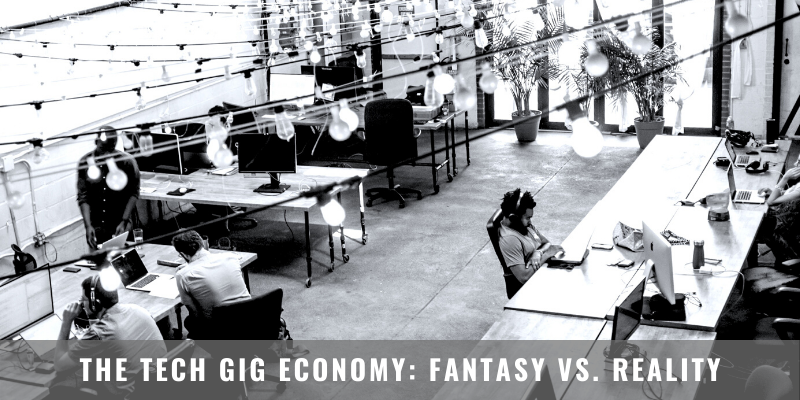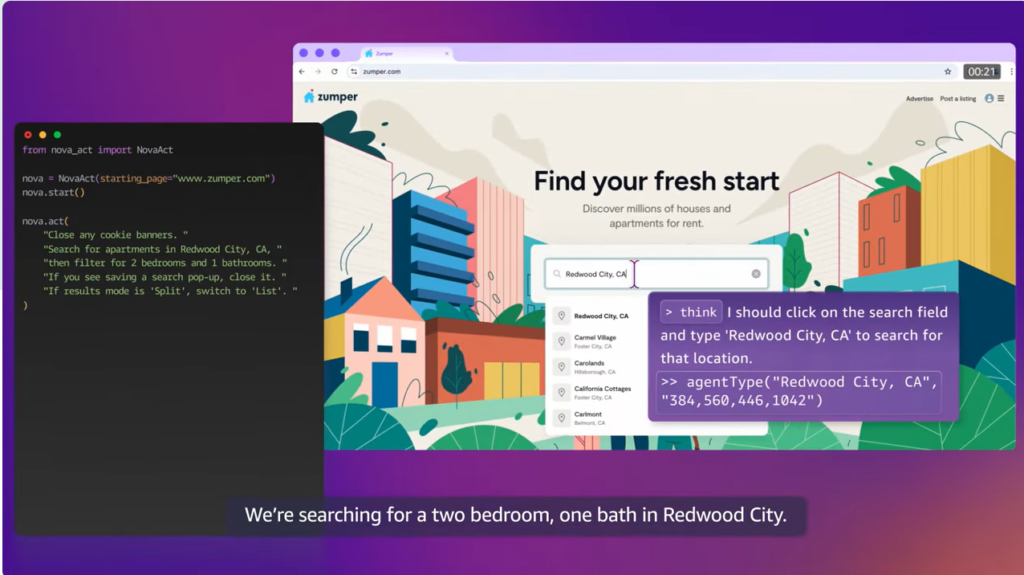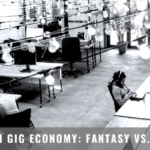By now, you should know all the great parts of freelancing. You’ve also heard the client’s perspective on working with freelancers. There is another point of view to consider in the discussion: the darker side of life as a freelancer.
After all, if freelancing had only a bright side, everyone would be doing it, don’t you think? The fact is, there are as many myths about freelancing as there are facts. I want to share some of the observations from my own life.
How Freelancers Differ From Salaried Professionals
At first glance, freelancers look just like their salaried counterparts. If you’re a freelance writer, you write, just as you would as a salaried copywriter. If you’re a freelance software developer, you develop software. Right?
There’s one particular subtle difference that makes freelancing a bit…well, a lot…more complicated. Salaried workers typically have someone working directly above them or, at least, someone managing the high level administrative or logistical tasks. The role of that employee often includes making sure there are always more tasks for the employee to complete, checking in with the employee to gauge his level of motivation, and, hopefully, making effort to see that the employee is content with the workload and atmosphere. The higher-ups also take care of other things employees don’t have to worry about: making sure the paycheck arrives on time, monitoring vacation time, ensuring proper traffic management, balancing a P and L sheet, logging in tax deductible purchases, and so on.
At the end of the day, salaried software developers can clock out and rest assured someone else is handling all those items above. Freelancers, however, must switch hats and attend to the additional responsibilities themselves. They are no longer software developers or writers at this point, they now must act as business owners.
Some Challenges for the Self-Employed
The word “self-employed” may be a bit misleading. It sounds passive. But in truth, the self who is employed by himself must be in action. So you’re both an employee and an employer, and you must fill both of these roles the best you can or you risk the loss of both your business and your paycheck.
I’d like to show you some challenges that await if you want to enter the world of freelancing.
Financial
You’re no longer an employee with HR department support and IT department support. You are your HR department and you are your IT department. All the things you take for granted when you work for someone else are gone. No shiny new laptops each year, no education budget, no fresh fruit delivered weekly.
Well, not unless you want to either do it yourself or put your own money toward it. Is that fancy new chair made from “aerospace-grade aluminum” really worth it? Or is it better to put the money into a tech certification course? Then again, maybe a course in business would be better than the certification?
And since we’re talking finances, there’s also another shadow looming over freelancers: Sure it’s expected for clients to come and go, but what happens when clients don’t come for some time? In big companies, marketing and sales departments are responsible for producing a steady flow of leads and new business. Finance departments are in charge of making sure those new clients pay on time, and then there are legal departments who get involved when there are disagreements about the quality of work delivered or the terms of the contract.
When you’re freelancing, all of these, once again, become your burden.
Organizational
As a freelancer, you are responsible for the product or service, but also for branding, marketing, sales, contracts, and negotiations. Do you think you’re a good marketer? How do you feel about negotiating the cost of a project?
Let’s say you are a great developer, but you see there’s no room for growth in the organization you’re currently working for. You decide it’s a good time to leave that job and become a freelancer. However, if you are a great developer but lacking all the other skills mentioned above you might not be as successful at freelancing as a mediocre developer who succeeds in branding and marketing himself.
In the world of freelancing, your technical skills matter much less than you’re used to. You may need to learn something new. Something that may not be comfortable for you. Do you think you can?
Are you interested in joining IOD’s growing global network of freelance tech experts and writers? Contact us and start to see for yourself how freelancing may be the preferred lifestyle choice for you this year.
The good news is, you don’t have to go on this adventure alone. There are various networking events or mastermind groups targeted at freelancers. You can meet with people who started in the same place you are, but who’ve figured out the intricacies along the way. You may think it’s a dog-eat-dog world, but there are probably more people who want to help you than there are those who want to hurt you or compete with you. After all, if you’re great in tech, and you meet an exceptional marketing professional at a networking event, you may even decide to exchange services so that both of you will benefit.
Mental
In a previous article, I’ve mentioned the mental challenges that can happen to a freelancer. The unpredictability of this lifestyle often leads to the infamous freelancer rollercoaster. The ride looks a little like this:
- You start working on a project. Everything is fine.
- You realize this project will soon end, so you start looking for another one.
- You talk with a few clients and decide to take two new gigs this time. This way, you’ll have something to do when one of those two ends.
- The original contract got extended for one of the two gigs. (Hooray, right?)
- You’re now working on three gigs at the same time. You feel exhausted and burned out. You start to panic.
- All three gigs come to an end and you feel a great relief. All you can think about now is a long vacation.
- You’re enjoying your vacation, but there’s one thing that bothers you. Each day spent on vacation means lost revenue. Shouldn’t you be finding new work?
- You finish your vacation and you start looking for new clients, but the process takes time. Your savings will only last you for another few weeks. You start to panic. You consider looking for a full-time job. Maybe a salaried position at a large company is not so bad after all.
The self-employed life is one that is typically marked by very high highs and very low lows: either you’re enormously ecstatic or stressed and depressed. Such mood swings are dangerous to our emotional well-being. My advice is to be mindful that this is one of the risks of freelance life and try to make decisions with careful thought, rather than reacting in fear.
Is It Worth It?
It seems like a lot of hassle in exchange for a moderate pay raise and the ability to work in pajamas. Does freelancing even make sense?
For me, it definitely does. As a freelancer, I get to organize my time the way I like. I can work when I feel the energy to work and I can go for a walk when I feel the need for fresh air. I can choose my own tools, my own schedule, and my own working hours.
I can also accept a lot of opportunities that otherwise wouldn’t be possible for me. I can “switch careers” even and try different roles on a whim. I can accept a book project or a video course deal which would be much harder to fit into the schedule with a 9-5. This means a lot to me.
Being a freelancer can also bring different kinds of opportunities. If you enjoy learning new skills and challenging yourself like I do, then a project that’s a bit outside your comfort zone is not only a new adventure, but also can become an important addition to your resume.
Also, meeting new people, regardless of whether they are clients or your peers from the mastermind group, can lead to partnerships you wouldn’t have thought of otherwise.
Freelancing Is Not the End of the World (or Your Career)
Let’s switch to philosophy for a moment. Stoics, a group of ancient philosophers, practiced something called negative visualization. They imagined the worst thing that can happen either to them or their loved ones. Through this, they gained a better appreciation of what they already have, but they also were better prepared for whatever ill fate fell upon them.
You can take this technique and make use of it. What’s the worst thing that can happen to you if you start freelancing? Needing to sell your car? Living in your parents’ basement? Ending up eventually needing to return to o a regular 9-5 job with the shame of failure? Imagine how each of the scenarios would feel. Chances are, they are not that bad after all.
Furthermore, freelancing doesn’t even mean you have to sacrifice the comfort and predictability of a paycheck forever. Some people go in and out of freelancing. They treat it just like any other job: they cling to it when it brings the benefits, but they give it up once they’re no longer satisfied. It’s not uncommon to see people that were engineers, then managers, then C-level executives, and then engineers back again. When you learn that you don’t want to do something there’s nothing stopping you from taking a step back and trying different things.
Feature image photo by Shridhar Gupta on Unsplash






